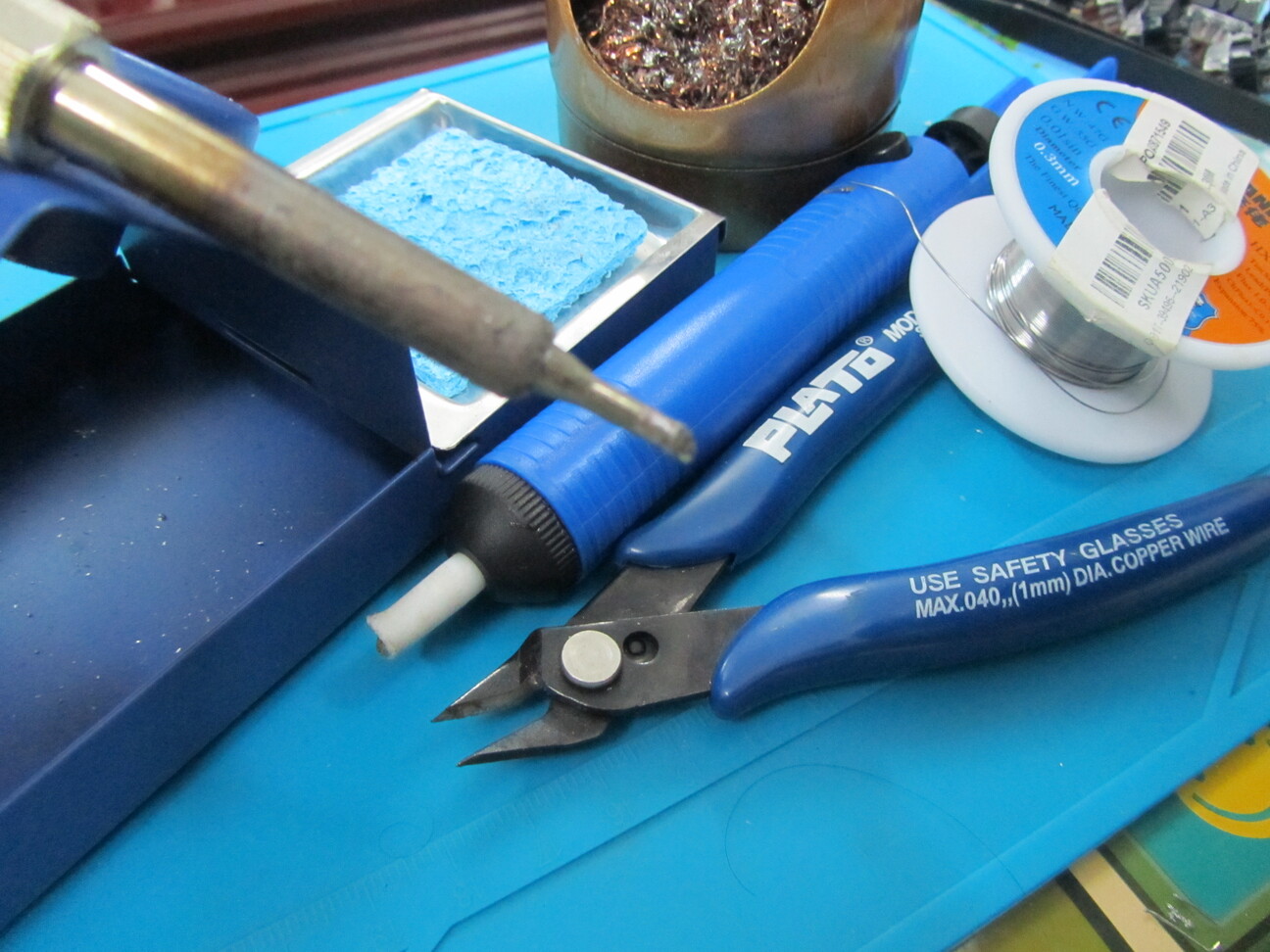-
Soldering iron.
- Even a very cheap one will do.
-
Soldering iron stand.
-
Fume Extractor/Filter.
- Especially if you're soldering indoors.
-
Solder.
- I would strongly recommend using better-than-the-cheapest solder. My experience with cheap solder is that it doesn't have enough flux, which makes soldering difficult.
-
A sponge, or brass wool, for cleaning solder from the soldering iron.
-
Desoldering sucker, or desoldering wick.
- A cheap desoldering sucker should be able to do the job. However, I'd recommend getting nicer-than-cheapest because if you're using a desoldering sucker, you'll want to reduce frustration experienced. (Especially if desoldering MX keyswitches).
-
Flush cutters.
-
Soldering mat; or cardboard or whatever to protect the surface from damage while soldering.
-
Digital Mulitmeter.
- The most useful functionality here is the continuity check.
- Take care, most cheap multimeters don't switch off automatically, which results in the battery draining completely after use if the multimeter isn't switched off.
-
Bevel/chisel soldering iron tip.
- Not strictly necessary, but it's what I used in this build.
-
Needle-nosed pliers.
-
Tweezers.
-
Wire stripper / Jumper wire.
- In many cases, jumper wire can be used to 'repair' a connection between keyboard switches, or fix other small mistakes/damages.
-
Twin-Headed Soldering Iron
- If you're going to do a lot of soldering of SMD diodes/resistors/etc., then it's very useful to have twin-headed soldering tweezers.
-
Hot Air Gun
- Makes it easier to solder SMD components.
